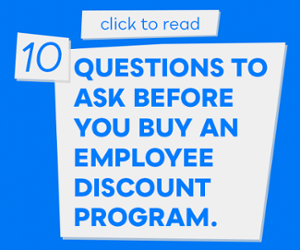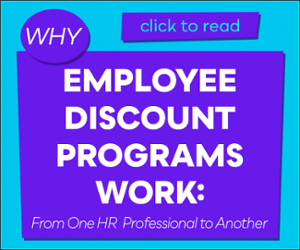- There’s a chilling link between HR professionals who usually stay late after quitting time and those who are likely to experience other seemingly unrelated stressors at work.
- An infographic shows the statistical likelihood of experiencing many negative consequences for habitually staying late.
- These and other interesting findings come from a new study, the HR Professionals Stress Index™ scheduled to be released on April 26th at a free webinar. #HRStressIndex
About a 4 min. read
We've all stayed late after work.
It's bound to happen despite our best intentions. Sometimes you get distracted. Sometimes a big project takes more time than you hoped. Other times, the end of the day just sneaks up on you.
It happens.
But we’ve also known an employee who purposefully stays late. They are the folks who...
- Stay late to show the boss they work harder than all the other employees.
- Stay late as a form of virtue signaling, trying to communicate to other employees that their work is somehow more important than everyone else’s.
- Work long hours because their identity is tied inextricably to being more successful than their peers.
While some of these late-stayers have less-than-honorable motives, most do not. The fact is, many people stay late because it's out of their control. For some, their company culture punishes or shames employees who go home on time. Others are chronically understaffed and simply must work longer hours to get their critical tasks completed.
Setting aside those people who really want or don't care if they work extra hours, chronically staying late comes at a cost.
The data is from our soon-to-be-released study, The HR Professionals Stress Index. It’s a global benchmarking assessment of what’s really causing stress and anxiety among HR professionals, and it offers new insights into work-related stress.
The survey looks at all aspects of HR work, asking professionals to rate their most stress-inducing tasks. Of the most interesting insights we discovered, we learned that HR professionals who don’t “usually go home on time” are:
- 173 percent more likely to be dissatisfied with their company’s dedication to work/life balance
- 116 percent more likely to have a bad relationship with the company’s senior executives.
- 114 percent more likely to say their company has a negative work culture.
- 99 percent more likely to dread coming to work.
- 81 percent more likely to have “too many emotionally charged confrontations at work.”
- 70 percent more likely to feel dissatisfied with the work they do.
- 54 percent more likely to report they work in a toxic environment.
- 45 percent more likely to report their company cultivates a false narrative.
- 43 percent more likely to say their company is not truly committed to diversity, equity, and inclusion.
- 42 percent more likely to consider pursuing a job outside of HR.
- 38 percent more likely to use their company’s EAP/mental health benefit.
(see the infographic below)
Of course, correlation does not imply causation. We can’t reasonably conclude that going home on time will necessarily cause you to be less stressed at work. But we do find a statistical correlation between those who usually go home on time, and those who feel more satisfied with the work they do. With all things being equal, those who go home on time are roughly 20 percent more likely to enjoy their job in HR, as compared with those who don’t usually go home on time.
The full HR Professionals Stress Index study will be released at a free webinar Tuesday, April 26 at 1 p.m. EDT. This fast-paced webinar will go into more detail about our findings and offer specific data about how certain tasks and responsibilities are impacting HR professionals.
We’ll also discuss what’s causing the most anxiety and stress for HR folks, so you can see how you stack up against your peers.
One of the primary takeaways will also be learning how to use this research to identify ways to improve your own work environment.
As further incentive, all webinar attendees will be entered to win one of our many nifty prizes, including cool swag like our HR-themed t-shirts and our ever-popular “liquid wellness” coffee mugs.
If you’d like to sign up for our free webinar, go here.
If you’d simply prefer to be notified when our study is officially released, add your name to the list here.
Infographic: What's at Risk when HR Professionals Don't Go Home on Time






